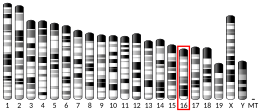BDH1
| BDH1 | |||||||||||||||||||||||||||||||||||||||||||||||||||
|---|---|---|---|---|---|---|---|---|---|---|---|---|---|---|---|---|---|---|---|---|---|---|---|---|---|---|---|---|---|---|---|---|---|---|---|---|---|---|---|---|---|---|---|---|---|---|---|---|---|---|---|
| Identifiers | |||||||||||||||||||||||||||||||||||||||||||||||||||
| Aliases | BDH1, BDH, SDR9C1, 3-hydroxybutyrate dehydrogenase, type 1, 3-hydroxybutyrate dehydrogenase 1 | ||||||||||||||||||||||||||||||||||||||||||||||||||
| External IDs | OMIM: 603063; MGI: 1919161; HomoloGene: 20860; GeneCards: BDH1; OMA:BDH1 - orthologs | ||||||||||||||||||||||||||||||||||||||||||||||||||
| |||||||||||||||||||||||||||||||||||||||||||||||||||
| |||||||||||||||||||||||||||||||||||||||||||||||||||
| |||||||||||||||||||||||||||||||||||||||||||||||||||
| |||||||||||||||||||||||||||||||||||||||||||||||||||
| |||||||||||||||||||||||||||||||||||||||||||||||||||
| Wikidata | |||||||||||||||||||||||||||||||||||||||||||||||||||
| |||||||||||||||||||||||||||||||||||||||||||||||||||
D-beta-hydroxybutyrate dehydrogenase, mitochondrial is an enzyme that in humans is encoded by the BDH1 gene.[5][6][7]
This gene encodes a member of the short-chain dehydrogenase/reductase gene family. The encoded protein forms a homotetrameric lipid-requiring enzyme of the mitochondrial membrane and has a specific requirement for phosphatidylcholine for optimal enzymatic activity. The encoded protein catalyzes the interconversion of acetoacetate and (R)-3-hydroxybutyrate, the two major ketone bodies produced during fatty acid catabolism. Alternatively spliced transcript variants encoding the same protein have been described.[7]
See also
References
- ^ a b c ENSG00000275544 GRCh38: Ensembl release 89: ENSG00000161267, ENSG00000275544 – Ensembl, May 2017
- ^ a b c GRCm38: Ensembl release 89: ENSMUSG00000046598 – Ensembl, May 2017
- ^ "Human PubMed Reference:". National Center for Biotechnology Information, U.S. National Library of Medicine.
- ^ "Mouse PubMed Reference:". National Center for Biotechnology Information, U.S. National Library of Medicine.
- ^ Marks AR, McIntyre JO, Duncan TM, Erdjument-Bromage H, Tempst P, Fleischer S (Aug 1992). "Molecular cloning and characterization of (R)-3-hydroxybutyrate dehydrogenase from human heart". J Biol Chem. 267 (22): 15459–63. doi:10.1016/S0021-9258(19)49556-2. PMID 1639787.
- ^ Persson B, Kallberg Y, Bray JE, Bruford E, Dellaporta SL, Favia AD, Duarte RG, Jornvall H, Kavanagh KL, Kedishvili N, Kisiela M, Maser E, Mindnich R, Orchard S, Penning TM, Thornton JM, Adamski J, Oppermann U (Feb 2009). "The SDR (short-chain dehydrogenase/reductase and related enzymes) nomenclature initiative". Chem Biol Interact. 178 (1–3): 94–8. Bibcode:2009CBI...178...94P. doi:10.1016/j.cbi.2008.10.040. PMC 2896744. PMID 19027726.
- ^ a b "Entrez Gene: BDH1 3-hydroxybutyrate dehydrogenase, type 1".
External links
- Human BDH1 genome location and BDH1 gene details page in the UCSC Genome Browser.
Further reading
- Adami P, Duncan TM, McIntyre JO, et al. (1993). "Monoclonal antibodies for structure-function studies of (R)-3-hydroxybutyrate dehydrogenase, a lipid-dependent membrane-bound enzyme". Biochem. J. 292 (3): 863–72. doi:10.1042/bj2920863. PMC 1134194. PMID 7686368.
- Langston HP, Jones L, Churchill S, Churchill PF (1996). "Purification and characterization of a (R)-3-hydroxybutyrate dehydrogenase deletion mutant. Evidence for C-terminal involvement in enzyme activation by lecithin". Arch. Biochem. Biophys. 327 (1): 45–52. doi:10.1006/abbi.1996.0091. PMID 8615695.
- Green D, Marks AR, Fleischer S, McIntyre JO (1996). "Wild type and mutant human heart (R)-3-hydroxybutyrate dehydrogenase expressed in insect cells". Biochemistry. 35 (25): 8158–65. doi:10.1021/bi952807n. PMID 8679568.
- Hillier LD, Lennon G, Becker M, et al. (1997). "Generation and analysis of 280,000 human expressed sequence tags". Genome Res. 6 (9): 807–28. doi:10.1101/gr.6.9.807. PMID 8889549.
- Chelius D, Loeb-Hennard C, Fleischer S, et al. (2000). "Phosphatidylcholine activation of human heart (R)-3-hydroxybutyrate dehydrogenase mutants lacking active center sulfhydryls: site-directed mutagenesis of a new recombinant fusion protein". Biochemistry. 39 (32): 9687–97. doi:10.1021/bi000274z. PMID 10933785.
- Loeb-Hennard C, McIntyre JO (2000). "(R)-3-hydroxybutyrate dehydrogenase: selective phosphatidylcholine binding by the C-terminal domain". Biochemistry. 39 (39): 11928–38. doi:10.1021/bi000425y. PMID 11009606.
- Xu XR, Huang J, Xu ZG, et al. (2002). "Insight into hepatocellular carcinogenesis at transcriptome level by comparing gene expression profiles of hepatocellular carcinoma with those of corresponding noncancerous liver". Proc. Natl. Acad. Sci. U.S.A. 98 (26): 15089–94. doi:10.1073/pnas.241522398. PMC 64988. PMID 11752456.
- Strausberg RL, Feingold EA, Grouse LH, et al. (2003). "Generation and initial analysis of more than 15,000 full-length human and mouse cDNA sequences". Proc. Natl. Acad. Sci. U.S.A. 99 (26): 16899–903. Bibcode:2002PNAS...9916899M. doi:10.1073/pnas.242603899. PMC 139241. PMID 12477932.
- Gerhard DS, Wagner L, Feingold EA, et al. (2004). "The status, quality, and expansion of the NIH full-length cDNA project: the Mammalian Gene Collection (MGC)". Genome Res. 14 (10B): 2121–7. doi:10.1101/gr.2596504. PMC 528928. PMID 15489334.
- v
- t
- e


















